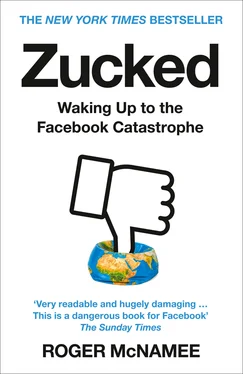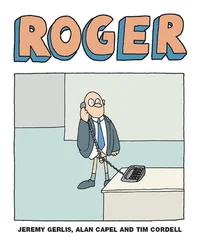When Zuck launched Facebook in early 2004, the tech industry had begun to emerge from the downturn caused by the dot-com meltdown. Web 2.0 was in its early stages, with no clear winners. For Silicon Valley, it was a time of transformation, with major change taking place in four arenas: startups, philosophy, economics, and culture. Collectively, these changes triggered unprecedented growth and wealth creation. Once the gravy train started, no one wanted to get off. When fortunes can be made overnight, few people pause to ask questions or consider side effects.
The first big Silicon Valley change related to the economics of startups. Hurdles that had long plagued new companies evaporated. Engineers could build world-class products quickly, thanks to the trove of complementary software components, like the Apache server and the Mozilla browser, from the open source community. With open source stacks as a foundation, engineers could focus all their effort on the valuable functionality of their app, rather than building infrastructure from the ground up. This saved time and money. In parallel, a new concept emerged—the cloud—and the industry embraced the notion of centralization of shared resources. The cloud is like Uber for data—customers don’t need to own their own data center or storage if a service provides it seamlessly from the cloud. Today’s leader in cloud services, Amazon Web Services (AWS), leveraged Amazon.com’s retail business to create a massive cloud infrastructure that it offered on a turnkey basis to startups and corporate customers. By enabling companies to outsource their hardware and network infrastructure, paying a monthly fee instead of the purchase price of an entire system, services like AWS lowered the cost of creating new businesses and shortened the time to market. Startups could mix and match free open source applications to create their software infrastructure. Updates were made once, in the cloud, and then downloaded by users, eliminating what had previously been a very costly and time-consuming process of upgrading individual PCs and servers. This freed startups to focus on their real value added, the application that sat on top of the stack. Netflix, Box, Dropbox, Slack, and many other businesses were built on this model.
Thus began the “lean startup” model. Without the huge expense and operational burden of creating a full tech infrastructure, new companies did not have to aim for perfection when they launched a new product, which had been Silicon Valley’s primary model to that point. For a fraction of the cost, they could create a minimum viable product (MVP), launch it, and see what happened. The lean startup model could work anywhere, but it worked best with cloud software, which could be updated as often as necessary. The first major industry created with the new model was social media, the Web 2.0 startups that were building networks of people rather than pages. Every day after launch, founders would study the data and tweak the product in response to customer feedback. In the lean startup philosophy, the product is never finished. It can always be improved. No matter how rapidly a startup grew, AWS could handle the load, as it demonstrated in supporting the phenomenal growth of Netflix. What in earlier generations would have required an army of experienced engineers could now be accomplished by relatively inexperienced engineers with an email to AWS. Infrastructure that used to require a huge capital investment could now be leased on a monthly basis. If the product did not take off, the cost of failure was negligible, particularly in comparison to the years before 2000. If the product found a market, the founders had alternatives. They could raise venture capital on favorable terms, hire a bigger team, improve the product, and spend to acquire more users. Or they could do what the founders of Instagram and WhatsApp would eventually do: sell out for billions with only a handful of employees.
Facebook’s motto—“Move fast and break things”—embodies the lean startup philosophy. Forget strategy. Pull together a few friends, make a product you like, and try it in the market. Make mistakes, fix them, repeat. For venture investors, the lean startup model was a godsend. It allowed venture capitalists to identify losers and kill them before they burned through much cash. Winners were so valuable that a fund needed only one to provide a great return.
When hardware and networks act as limiters, software must be elegant. Engineers sacrifice frills to maximize performance. The no-frills design of Google’s search bar made a huge difference in the early days, providing a competitive advantage relative to Excite, Altavista, and Yahoo. A decade earlier, Microsoft’s early versions of Windows failed in part because hardware in that era could not handle the processing demands imposed by the design. By 2004, every PC had processing power to spare. Wired networks could handle video. Facebook’s design outperformed MySpace in almost every dimension, providing a relative advantage, but the company did not face the fundamental challenges that had prevailed even a decade earlier. Engineers had enough processing power, storage, and network bandwidth to change the world, at least on PCs. Programming still rewarded genius and creativity, but an entrepreneur like Zuck did not need a team of experienced engineers with systems expertise to execute a business plan. For a founder in his early twenties, this was a lucky break. Zuck could build a team of people his own age and mold them. Unlike Google, Facebook was reluctant to hire people with experience. Inexperience went from being a barrier to being an advantage, as it kept labor costs low and made it possible for a young man in his twenties to be an effective CEO. The people in Zuck’s inner circle bought into his vision without reservation, and they conveyed that vision to the rank-and-file engineers. On its own terms, Facebook’s human resources strategy worked exceptionally well. The company exceeded its goals year after year, creating massive wealth for its shareholders, but especially for Zuck. The success of Facebook’s strategy had a profound impact on the human resources culture of Silicon Valley startups.
In the early days of Silicon Valley, software engineers generally came from the computer science and electrical engineering programs at MIT, Caltech, and Carnegie Mellon. By the late seventies, Berkeley and Stanford had joined the top tier. They were followed in the midnineties by the University of Illinois at Urbana-Champaign, the alma mater of Marc Andreessen, and other universities with strong computer science programs. After 2000, programmers were coming from just about every university in America, including Harvard.
When faced with a surplus for the first time, engineers had new and exciting options. The wave of startups launched after 2003 could have applied surplus processing, memory, storage, and bandwidth to improve users’ well-being and happiness, for example. A few people tried, which is what led to the creation of the Siri personal assistant, among other things. The most successful entrepreneurs took a different path. They recognized that the penetration of broadband might enable them to build global consumer technology brands very quickly, so they opted for maximum scale. To grow as fast as possible, they did everything they could to eliminate friction like purchase prices, criticism, and regulation. Products were free, criticism and privacy norms ignored. Faced with the choice between asking permission or begging forgiveness, entrepreneurs embraced the latter. For some startups, challenging authority was central to their culture. To maximize both engagement and revenues, Web 2.0 startups focused their technology on the weakest elements of human psychology. They set out to create habits, evolved habits into addictions, and laid the groundwork for giant fortunes.
Читать дальше






